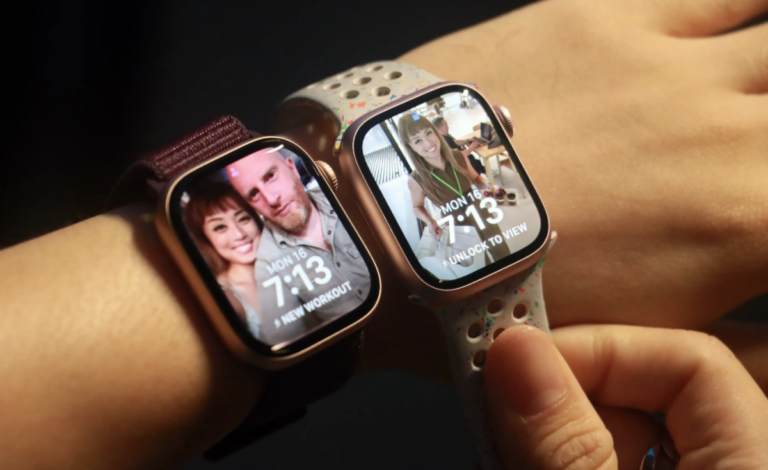6 common habits that can damage your eyesight
Your vision is more than just your vision part of your overall health.
Eye health is not something to take for granted – especially with American Academy of Ophthalmology predicts a dramatic increase in vision problems over the next 30 years. In addition to genetic or age-related changes in vision, your daily habits can harm your eye health. We’ve rounded up the most common bad eye habits and preventative measures you can take to avoid them.
For more see what foods to add to your diet and things to do every day to keep your eyes healthy. remember regular eye checks are still a must to keep your eyes in perfect shape.
1. Using expired makeup
It’s easy to forget that your favorite makeup products have a shelf life, especially when you use them every day. Usage Expired mascara and eyeliner can put your eyes at risk of infection. A good rule of thumb when determining when it’s time to ditch a product is to look Period after opening. This stamp will tell you how much time you have after opening the product before it needs to be replaced. For example, usually mascara can last about three months.
It is also important to store your cosmetics properly. Improper storage can affect the product’s shelf life and can lead to the growth of bacteria or mold, putting you at risk of infection.
2. Reusing contact lenses
If you think you’re saving money by recycling your contacts, it could end up costing you more in the long run. As someone who has done this and gotten numerous eye infections as a result, I can attest that this is the contact lens habit worth kicking. When I switched to using daily contacts and using glasses interchangeably, I dramatically reduced my chances of developing an eye infection and kept my eyes healthier.
It’s worth considering switching to casual: One study found that people who wear reusable contact lenses are about four times more likely to develop Acanthamoeba keratitisa rare eye infection that may increase the risk of vision loss or blindness compared to people who use daily contacts.
Other habits you should break with your contact lenses include sleeping, showering or swimming with them. Dr. Mackenzie Sword, a board-certified ophthalmologist, warns, “Sleeping with your contact lenses and improper lens cleaning can significantly increase the risk of a corneal ulcer caused by a bacterial, fungal, or parasitic infection.” As if that weren’t alarming enough, losing of vision from complications related to contact lenses can be severe and permanent.
Read more: Best places to buy contacts online
3. Not wearing sunglasses
You know yours skin needs sunscreen to protect it from harmful UV raysand believe it or not, your eyes need to be protected too. Sward recommends wearing adequate UV protection when outdoors or in a car, even if it’s cloudy. “This is because harmful UVA and UVB rays in the atmosphere can increase the risk of macular degeneration, cataracts, eyelid skin cancer and other eye diseases,” she explains. To protect your eyes, Sward advises choosing sunglasses with 100% UV protection every time you go outside.
“Cumulative UV exposure and damage only increases the incidence of macular degeneration, cataracts, pterygium and skin cancer,” she explains. These conditions may be permanent or require surgical treatment to correct. People in occupations with more outdoor work, such as construction or landscaping, are at higher risk for certain conditions associated with UV damage, so you should be more careful to protect yourself.
Read more: The best prescription sunglasses
4. Do not wear safety glasses
You should also wear safety glasses when playing sports or doing work that involves the risk of eye injury. The U.S. Centers for Disease Control and Prevention “estimates that about 2,000 people a day suffer work-related eye injuries, and the American Academy of Ophthalmology estimates that there are 30,000 sports-related eye injuries in the United States each year,” Seward said. Many of these injuries are preventable and usually involve foreign objects getting stuck in the eye, such as dust, wood, metal, or plant debris. Other injuries you can get from not wearing eye protection include blunt or direct trauma from a fall or from larger objects such as tools striking the face.
5. Smoking
Except the acquaintances many health risks of smoking can cause can also harm your eyes. Cigarette smoking doubles risk of macular degenerationwhich can lead to vision loss in the part of the eye known as the macula. Smoking also damages your retina and increases your chances of cataracts, which cloud the lens of the eye and can lead to vision loss. According to the US Food and Drug Administration, smokers are approx three times more likely to develop cataracts and up to four times more likely to develop age-related macular degeneration than non-smokers. So if you are a smoker, it would be in your best interest to kick the habit.
6. Spending too much time in front of screens
We can all admit that we can limit our time on our smartphones, laptops and tablets. Spending fewer hours with these items would also benefit our eyesight. Digital eye strain or Computer vision syndrome is a condition that occurs when you stare at a computer or the phone screen for too long. It can cause dry eyes, blurred vision, headaches, back pain and other symptoms of discomfort.
Sward recommends taking frequent breaks from screens to let your eyes rest and wearing a pair of prescription lenses that are specifically made for use in front of the computer. “It’s important to see an eye specialist regularly to make sure you’re wearing the right glasses for correction and (to) be screened for eye conditions that may otherwise have no symptoms,” she said.








